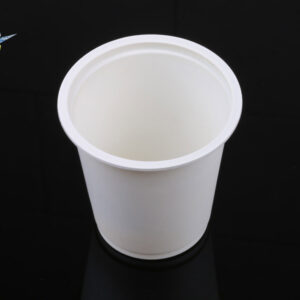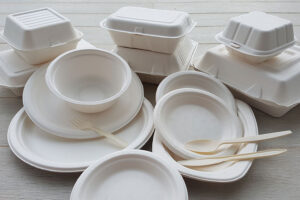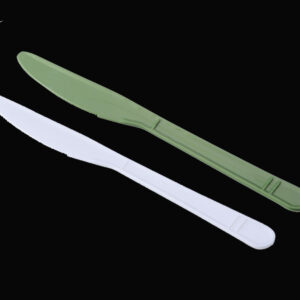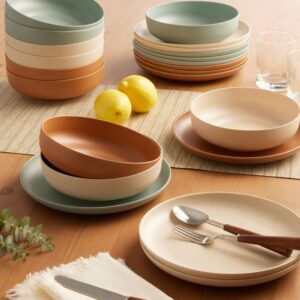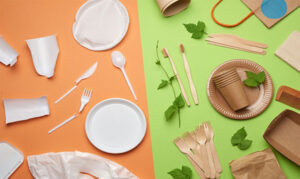
In an era where environmental consciousness is paramount, the impact of plastic waste on our oceans has become a pressing concern. As we search for solutions, one significant step forward is the adoption of sustainable tableware. This article explores how eco-friendly tableware, produced by environmentally conscious manufacturers, is not just an alternative but a necessity in our journey towards plastic-free oceans.

The Problem with Plastic Tableware
Traditional plastic tableware, commonly used in households and by food service industries, has significantly contributed to ocean pollution. These plastics, often used just once before being discarded, find their way into marine ecosystems, posing a threat to wildlife and the environment. Statistics show that millions of tons of plastic waste end up in our oceans yearly, with single-use tableware being a considerable part of this problem.
What is Sustainable Tableware?
Sustainable tableware represents a greener alternative to traditional plastics. These eco-friendly products are made from natural and renewable materials such as bamboo, cornstarch, and palm leaves. Particularly notable are cornstarch tableware products, which are gaining popularity for their biodegradability. Disposable cornstarch tableware manufacturers have innovated in creating products that offer the convenience of plastic with a significantly reduced environmental footprint.

Benefits of Switching to Sustainable Tableware
Environmental Impact
- By opting for sustainable tableware, reducing plastic waste contributes directly to less ocean pollution. These eco-friendly alternatives, often produced by environmentally conscious manufacturers, decompose naturally, thereby mitigating the harm to marine life and ecosystems.
Health Benefits
- Sustainable tableware is often toxins-free, unlike some plastics that can leach harmful chemicals like BPA. This makes them safer for consumers, mainly when used for serving food.
Durability and Usability
- Contrary to the misconception that eco-friendly means less durable, many sustainable tableware options are robust and practical for everyday use. Innovations by manufacturers have led to products that maintain quality and convenience.
Overcoming Challenges in Adoption
While the shift to sustainable tableware is beneficial, it does come with challenges:
- Cost and Accessibility: Initially, eco-friendly options may seem more expensive than traditional plastic. However, increased demand and production are gradually reducing costs. Accessibility is also improving as more environmentally friendly tableware manufacturers enter the market.
- Consumer Habits: Changing established habits can be a hurdle. Education and awareness about the environmental impact of plastic tableware are crucial in encouraging a shift to sustainable alternatives.
The Role of Businesses and Consumers
Both businesses and consumers play a vital role in the transition to sustainable tableware:
- Business Leadership: Food service businesses, including restaurants and cafes, can lead by example, opting for eco
-friendly tableware. Their choices can influence consumer behavior and create a demand for products from sustainable tableware manufacturers.
- Consumer Choices: Consumers can drive change through their purchasing decisions. By choosing products from cornstarch tableware manufacturers or other sustainable options, they can encourage more businesses to offer eco-friendly tableware.
Sustainability Beyond Tableware
Choosing sustainable tableware is part of a broader lifestyle choice towards sustainability:
- Eco-Friendly Living: Adopting sustainable tableware is one aspect of an eco-friendly lifestyle. Consumers increasingly seek products that align with their environmental values, from clothing to food.
- Comprehensive Practices: For manufacturers, sustainability extends beyond the product itself. It involves ethical sourcing of materials, energy-efficient production processes, and minimal packaging.
Innovations in Sustainable Tableware
The field of sustainable tableware is ripe with innovation, spearheaded by forward-thinking, environmentally friendly tableware manufacturers:
- Advancements in Materials: New materials are being explored for durability and sustainability. For instance, cornstarch-based tableware offers a biodegradable solution while maintaining the usability of traditional plastics.
- Design Innovations: Modern sustainable tableware is functional and aesthetically pleasing, catering to a range of styles and preferences.
How to Choose the Right Sustainable Tableware
When selecting eco-friendly tableware, consider the following:
- Material Quality: Ensure the products are made from high-quality, sustainable materials. Look for certifications that validate their
Eco-friendly nature.
- Lifespan and Degradability: Assess how long the products will last and how they decompose after disposal. Products from reputable disposable cornstarch tableware manufacturers often provide this information.
- Manufacturer’s Practices: Research the manufacturing practices of the company. Ethical and environmentally conscious production processes are as important as the product itself.
Conclusion
Sustainable tableware is more than just a trend; it’s a crucial step towards reducing our environmental impact and achieving plastic-free oceans. By opting for products from responsible cornstarch tableware manufacturers or other eco-friendly options, both businesses and consumers can contribute significantly to this important cause. As we become more environmentally conscious, sustainable tableware is set to become the norm, reflecting our commitment to protecting the planet.
FAQs
Q: Can sustainable tableware be as convenient as plastic?
- A: Absolutely. Many eco-friendly tableware options are designed for convenience and can be comparable to plastic in terms of use and functionality.
Q: Is biodegradable tableware compostable?
- A: It depends on the material. Most cornstarch-based tableware, for instance, is compostable under the right conditions. Always check the product specifications for clarity.
Q: How can I encourage my local businesses to use sustainable tableware?
- A: You can start by expressing your preference for eco-friendly options and supporting businesses that already use sustainable tableware. Consumer demand is a powerful motivator for companies to make a change.


